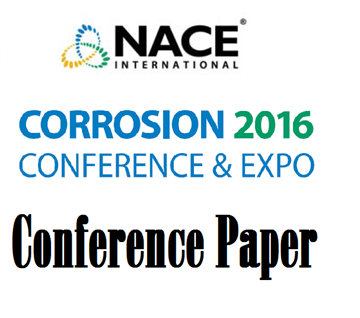Search
Sour Service Test Qualification of a New High-Strength Titanium Alloy
Also Purchased
51316-7328-Comparing Environmental Resistance of UNS R55400 Tubulars to Other Oilfield Titanium Alloys
Product Number:
51316-7328-SG
ISBN:
7328 2016 CP
Publication Date:
2016
$20.00
01003 GUIDELINES FOR SUCCESSFUL INTEGRATION OF TITANIUM ALLOY COMPONENTS INTO SUBSEA PRODUCTION SYSTEMS
Product Number:
51300-01003-SG
ISBN:
01003 2001 CP
$20.00
10318 Titanium Alloy Tubing for HPHT OCTG Applications
Product Number:
51300-10318-SG
ISBN:
10318 2010 CP
Publication Date:
2010
$20.00




